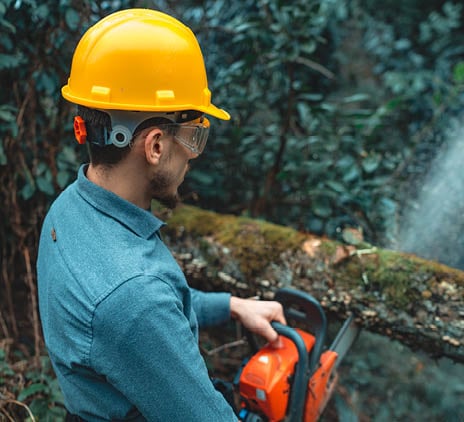-
Financial administration
An accurate financial administration provides you with the information you need to take the right decisions. The big advantage of a digital financial administration is that it provides insight into your most important financial processes at any time, whether this is the invoices, salary payments or bank changes.
-
Financial insight
You want to take the right decisions, based on trustworthy and clear management information. You want to have access to all your financial data, 24/7, in order to determine your position and be able to adjust where necessary.
-
Global compliance partnering
Outsourced compliance services comprises the total financial compliance of your business, in accounting, financial reporting, payroll, legal and various tax reporting obligations. We can make sure you don’t have to worry.

-
Impact House by Grant Thornton
Building sustainability and social impact. That sounds good. But how do you go about it in the complex world of stakeholders, regulations and frameworks and changing demands from clients and society? How do you deal with important issues such as climate change and biodiversity loss?
-
Business risk services
Minimize risk, maximize predictability, and execution Good insights help you look further ahead and adapt faster. Whether you require outsourced or co-procured internal audit services and expertise to address a specific technology, cyber or regulatory challenge, we provide a turnkey and reliable solution.
-
Corporate finance
Finding a suitable match at the most optimum terms. That, in a nutshell, aptly describes the objective of mergers and acquisitions. To most businesses mergers or acquisitions are not standard daily practice. It is, however, for the professionals at Grant Thornton! Seeking their services will add value instantly.
-
Cyber risk services
What should I be doing first if my data has been kidnapped? Have I taken the right precautions for protecting my data or am I putting too much effort into just one of the risks? And how do I quickly detect intruders on my network? Good questions! We help you to answer these questions.
-
Transaction services
What will the net proceeds be after the sale? How do I optimise the selling price of my business or the price of one of my business activities? How do I capitalise on synergies following an acquisition? Am I not offering too much? These are all good questions when you’re buying or selling a business. It’s a transaction that concerns significant amounts, impacts your future, and therefore must be executed properly. We provide a solid foundation for your decisions.
-
Valuation, investigation & dispute services
Do you require a fact finding investigation to help assess irregularities? Is it necessary to ascertain facts for litigation purposes?

-
Auditing of annual accounts
You are answerable to others, such as shareholders and other stakeholders, with regard to your financial affairs. Financial information must therefore be reliable. What is more, you want to know how far you are progressing towards achieving your goals and what risks may apply.
-
IFRS services
Financial reporting in accordance with IFRS is a complex matter. Nowadays, an increasing number of international companies are becoming aware of the rules. But how do you apply them in practice?
-
ISAE & SOC Reporting
Our ISAE & SOC Reporting services provide independent and objective reports on the design, implementation and operational effectiveness of controls at service organizations.
-
Pre-audit services
Pre-audit services is all about making the company’s entire financial administration ready for checking before the external accountant begins his/her audit of the annual accounts.
-
SOx law implementation
The SOx legislation dictates that management is structurally accountable for reporting on the internal control relevant to the financial statements.

-
International corporate tax
The Netherlands’ tax regime is highly dynamic. Rules and the administrative courts raise new challenges in fiscal considerations on a nearly daily basis, both nationally and internationally.
-
VAT advice
VAT is an exceptionally thorny issue, especially in major national and international activities. Filing cross-border returns, registering or making payments requires specialised knowledge. It is crucial to keep that knowledge up-to-date in order to respond to the dynamics of national and international legislation and regulation.
-
Customs
Importing/exporting goods to or from the European Union involves navigating complicated customs formalities. Failure to comply with these requirements usually results in delays. In addition, an excessively high rate of taxation or customs valuation for imports can cost you money.
-
Human Capital Services
Do your employees determine the success and growth of your organisation? And are you in need of specialists which you can ask your Human Resources (HR) related questions? Human Resources (HR) related questions? Our HR specialists will assist you in the areas of personnel and payroll administration, labour law and taxation relating to your personnel. We provide you with high-quality personnel and payroll administration, good HR guidance and the right (international) advice as standard. All this, of course, with a focus on the human dimension.
-
Innovation & grants
Anyone who runs their own business sets themselves apart from the rest. Anyone who dares stick their neck out distinguishes themselves even more. That can be rather lucrative.
-
Tax technology
Driven by tax technology, we help you with your (most important) tax risks. Identify and manage your risks and become in control!
-
Transfer pricing
The increased attention for transfer pricing places greater demands on the internal organisation and on reporting.
-
Sustainable tax
In this rapidly changing world, it is increasingly important to consider environmental impact (in accordance with ESG), instead of limiting considerations to financial incentives. Multinational companies should review and potentially reconsider their tax strategy due to the constantly evolving social standards
-
Pillar Two
On 1 January 2024 the European Union will introduce a new tax law named “Pillar Two”. These new regulations will be applicable to groups with a turnover of more than EUR 750 million.
-
Cryptocurrency and digital assets
In the past decade, the utilization of blockchain and its adoption of a distributed ledger have proven their capacity to revolutionize the financial sector, inspiring numerous initiatives from businesses and entrepreneurs.
-
Streamlined Global Compliance
Large corporations with a presence in multiple jurisdictions face a number of compliance challenges. Not least of these are the varied and complex reporting and compliance requirements imposed by different countries. To overcome these challenges, Grant Thornton provides a solution to streamline the global compliance process by centralizing the delivery approach.
-
Expand into new markets
Do you seek for opportunities in the global business arena? Whether you are about to open a new office in a foreign country or considering an international acquisition, you need certainty of making the right choices for your company. Global expansion isn’t always as simple as it sounds. The good thing is that we’re here to help!
-
Expanding your business in the Netherlands
International expansion is an important step. The Netherlands can be your gateway to Europe for doing business abroad. But why you should choose the Netherlands?
-
Global contacts
Wherever you choose to do business, you want access to people with the best ideas and critical thinking that will enable you to grow your business at home and abroad.
-
Corporate Law
From the general terms and conditions to the legal strategy, these matters need to be watertight. This provides assurance, and therefore peace of mind and room for growth. We will be pro-active and pragmatic in thinking along with you. We always like to look ahead and go the extra mile.
-
Employment Law
Small company or large multinational: in any company your people are of the utmost importance for your business. Employment brings with it many issues in many areas and often has legal consequences. For big strategic, but also for more everyday questions about employment law, our lawyers are ready to help you out. Also for questions about international employment law. Do you have your own HR department? We’ll gladly assist them. We deliver bespoke services and are there when you need us.
-
Sustainable legal
Sustainability is more than a buzzword - it is the core of our legal advice towards sustainable success. From drafting sustainable contracts, integrating sustainable HR policies and ESG due diligence within our M&A practice to advising on ESG and other (national and international) legislation: we prefer to be pragmatic and proactive in helping your business.
-
Maritime sector
How can you continue to be a global leader? The Netherlands depends on innovation. It is our high-quality knowledge which leads the maritime sector to be of world class.


Planning was that customs would initiate enforcement as of December 30th, 2024 . Recently the European commission requested the European Parlement and the council of ministers to agree with a one-year delay for the commencement. While formal decisions are still pending, companies must continue preparing for the EUDR's eventual implementation. Below we explain exactly what this implies.
What is the EUDR?
Between 1990 and 2020, a forested area the size of the European Union was lost. To put a stop to this deforestation, the EU Regulation on Deforestation Free Products (EUDR) will apply from 2023. The EUDR is the successor of the European Timber Regulation (EUTR), which applied to the import of timber and derived products since 2013. Under the EUDR, certain products may not be produced, imported or exported on the European market that originate from areas that were deforested after December 30th, 2020.
Which products does the regulation cover?
The EUDR applies to the following products:
- Cattle
- Cocoa
- Coffee
- Palm-oil
- Soy
- Timber
- Rubber
The regulation also applies to (half) derived products such as leather, chocolate, furniture, paper, beef, and charcoal. Not all products are subject to an import ban from the EUDR. The Dutch Food and Consumer Product Safety Authority (NVWA) maintains and periodically publishes the full list of prohibited raw materials and products derived from them, classified by commodity code (so-called 'HS codes').
Obligations for large importers and SME’s in the chain
Do you import products that are in scope of the EUDR? Then you must declare that the components of these products have not contributed to deforestation of agricultural land that has been deforested after December 30th, 2020 (the 'cut-off date'). Products are prohibited and therefore cannot be imported if they originate from farmland that has been deforested after December 30th, 2020.
For this purpose, so-called due diligence requirements should be met. This implies that you should demonstrate where the raw materials came from. Upon import, you should provide precise geographical information about the relevant agricultural land, with satellite images and GPS coordinates. Based hereon, Customs will compare the situation upon import with the situation as per December 30th, 2020, to determine whether the products were obtained from deforestation after December 30th, 2020.
This obligation does not only apply to you as an importer. Every subsequent link in the supply chain should also assess whether they meet the due diligence requirements based on information received from its supplier. The regulation draws a distinction between large importers and small- and medium (‘SME’) importers. Large importers (more than 250 FTE, or a turnover > 50 million euros and a balance sheet total > 43 million euros) are subject to a full due diligence and information obligation for products to be imported or traded.
SME importers are generally exempt from the due diligence requirement but do have an information obligation. This group should also demonstrate (for example, by including references) from whom they obtained the products and that the imported products were not produced as a result of deforestation.
Sanctions for non-compliance with the EUDR
EU-countries will carry out on-site checks for compliance with the EUDR. For the import of goods, they will conduct a risk analysis of the countries and sectors where the risk of deforestation is considered the highest. Possible sanctions for non-compliance are:
- Fines, up to four percent of the sales of the previous year. An even higher fine can be imposed if this is necessary to eliminate the economic benefit.
- Confiscation of the revenue of these products.
- Refusal of "forbidden" products at the border and seizing hereof by authorities.
- Temporary exclusion from public tenders (with a maximum of 12 months) in case of serious or repeated violations.
- Temporary prohibition from marketing, offering or exporting the goods in question.
The European Commission will publish the offender and the sanction imposed on its website.
When does the EUDR take effect?
The EUDR has been in effect since May 31st, 2023, with a transition period of 18 to 24 months, for which the European commission has requested a delay for one additional year. For large companies, the obligations resulting from the EUDR will be effective as from December 30th, 2024, but it is likely that these will be delayed with a one-year period to December 30, 2025. For SME’s, these obligations in principal will apply from June 30th, 2025, but also here a delay of one year has been requested.
The regulation will be evaluated after two years. Possibly, wetlands and savannas will then also be regarded as protected "forest", and corn and biodiesel may be added to the list of prohibited products.
Start now!
Even though a possible delay may be granted, the obligations under the EUDR will become relevant faster than may be expected. In other words: there is work to be done. It is vital to map out the supply chain to be able to demonstrate where and from whom the product in question originates. Engage with suppliers, so that they are prepared to meet the requirements and provide the relevant data. Make an overview of the risks and challenges resulting from the EUDR for your company.
Need help with that or want to learn more about the EUDR and its impact on your business? Feel free to call or email us, we are happy to show you the way.





